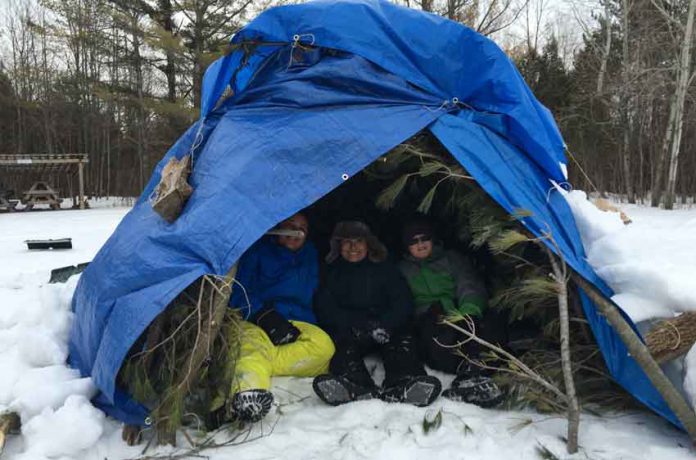The free Guide to Resilient Children offers practical tips and everyday solutions; available at Scouts.ca
Resiliency is the ability to bounce back and recover from a setback or difficult experience. Now more than ever, developing children’s personal capacity for resiliency is essential for coping with risk factors, uncertainty, and stress, as well as for building positive mental health, emotional wellbeing, social relationships, and academic achievement.
To provide Canadian families with the tools and knowledge to better navigate risk and challenges – not just during a pandemic but also in everyday life – Scouts Canada is partnering with award-winning educator and resiliency expert Dr. Robyne Hanley-Dafoe to launch The Guide to Resilient Children. This free resource, available at Scouts.ca, will help parents and supporters set a foundation for cultivating resiliency, establish age-appropriate goals, and offer practical tips and sustainable solutions.
Scouts Canada is also hosting a free interactive webinar with Dr. Robyne on Sunday, October 18 at 2pm ET / 11am PT to discuss her principles of building resiliency, offer steps families can take at home and enable parents to ask questions.
“Resiliency is the journey – not the destination, not something children are born with or without,” said Dr. Robyne. “Children need experiences and opportunities to develop skills and learn to be resilient. There are common qualities and patterns that people can tap into for growing resiliency, help kids to bounce back and grow stronger through difficulty.”
Here are five steps families can take to help increase their children’s capacity for resiliency:
- Take risks
Risk-taking is an important skill that children need to develop. It is paramount to differentiate risk-taking—engaging in any activity without a clear outcome that holds the potential for experiencing an adverse effect—from danger, a threatening event or encounter that requires an adult to protect the child. The goal is not for children to get hurt, but to allow them to experience the excitement of testing their limits and abilities, help develop their decision-making to perceive danger and increase self-regulation. - Promote a growth mindset
Children can learn how to see their world with a growth mindset versus a fixed mindset. A fixed mindset says, “I am not good at making friends,” while a growth mindset says, “I may not be good at making friends yet, but I can get better”. The operative word is yet; it sends a cue to the brain that while they might not be able to do something well right now, they can improve. - Normalize setbacks
Life will inevitably provide situations for children to experience challenges and difficulty. The goal is not to eliminate these challenges for children, but to prepare children to deal with difficulties effectively. Normalize setbacks, challenges, and failures as part of the learning process. - Set affirmations
Parents play a significant role in helping children form their personal resiliency worldview. Setting finisher resiliency statements – I have…, I am…, I can…, and I will… – reinforces positive self-belief. Examples of finisher statements include, “I have the ability to learn this new skill” and “I am a person people can like”. - Increase outdoor play
Outdoor play is a fundamental need for children. It supports cognitive functioning such as the use of imagination, which fosters creativity and problem-solving. It also promotes mindfulness, increased self-efficacy, and reduced feelings of stress, which all contribute to building their resiliency.
For more tips and practices, visit Scouts.ca to access The Guide to Resilient Children, or register for the free webinar.
Plus, girls, boys, and young adults ages five to 26 can Scout for free for the remainder of 2020. The fall program will challenge youth to get outside, develop well-rounded skills, discover a sense of community, experience adventure, and build resilience through fun activities. Families can sign up at Scouts.ca.








